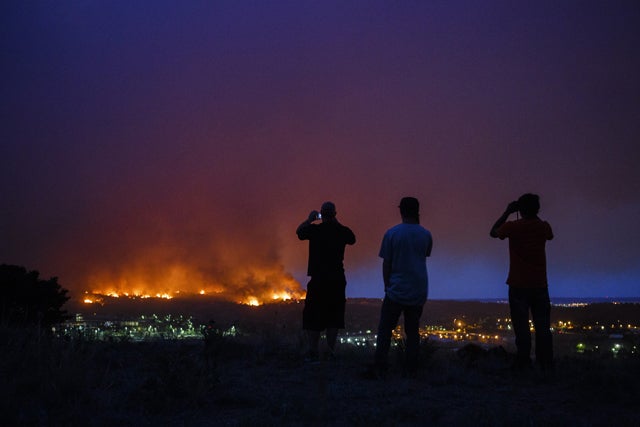Amid the destruction of the Waldo Canyon fire in central Colorado, local churches and charity organizations have quickly mobilized to meet the needs of neighbors fleeing the fire.
New Life Church in Colorado Springs has been a hub of disaster relief activities since the fire started roaring down mountain ranges to within a few miles of the city’s limits earlier this week.
“We don’t wish for these kinds of tragedies, but in these kinds of times this is the church’s finest hour,” New Life pastor Brady Boyd explained to reporters. “This is when the church can be the church. Our people from across the city are responding.”
New Life members, like many other local organizations, moved to action as the fire rushed closer. “They took people in their homes. They took food down to the food banks. There were people that were moving horses, livestock out of danger, they’ve volunteered all that,” Brady said.
Four semi-trailers full of food and basic provisions have arrived at New Life. As many evacuations have yet to be lifted, the church has also set up a housing network to help victims of the fire connect with others willing to open their homes to evacuated families.
Three Catholic Charities affiliates near Denver and Colorado Springs have sent financial donations, relief supplies, and food to shelters near the blaze. Samaritan’s Purse has coordinated disaster relief teams near other fires, offering basic necessities to evacuees and starting the clean-up process with families who lost everything to the blazes.
As Heritage’s Jennifer Marshall and James Carafano have explained, part of what makes churches and local faith-based organizations invaluable to disaster relief efforts is their intimate knowledge of the lives and needs of their communities. In addition to the social services provided year round by charities, local community organizations’ situational awareness and physical proximity allows them to swiftly meet their neighbors’ needs.
The integral position of local churches and faith-based organizations should reaffirm the importance of these institutions for the health of civil society. However, increasing government overreach and disregard for the groups’ religious freedom to continue helping others in accordance with their faith—the same faith that motivates them to serve in the first place—threatens these invaluable institutions.
Ironically, while faith-based charities were helping victims of Colorado’s fires this week, the Supreme Court upheld Obamacare, which would force such religious organizations to violate their beliefs by providing life-ending services in insurance plans. Policymakers and all Americans should be vigilant to protect the integral work of faith-based groups by respecting and defending their religious freedom.
